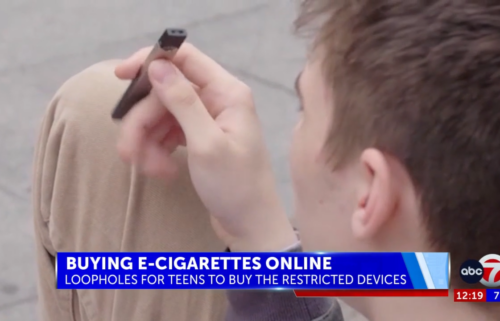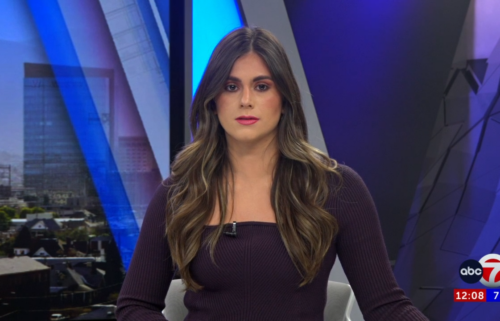Judge orders Justice Department to turn over certain internal documents to Bannon
By Tierney Sneed and Sara Murray, CNN
A federal judge ordered the Justice Department to turn over certain internal documents that may relate to its decision to prosecute Steve Bannon, the former adviser to Donald Trump who has been charged with contempt of Congress after his failure to comply with a House committee subpoena.
While it’s not clear whether the documents covered by the order exist or what role they could play in Bannon’s case, he is one of several witnesses sought by the January 6 committees who have raised arguments about executive privilege and whether it relieves them from their obligation to cooperate in the probe.
Depending on what DOJ ultimately produced under the new order — issued by US District Judge Carl Nichols — it could offer insight to how DOJ views cases like Bannon and how it sees Bannon’s case as different from other scenarios where current or former government officials have not complied with congressional subpoenas.
Specifically, Nichols ordered that the department produce to Bannon statements or writings reflecting official Justice Department policy — public or not public — if such writings relate to prosecuting or not prosecuting a government official or former government official who raised executive privilege claims as a defense of immunity, or similar issues.
Lawmakers have referred another recalcitrant witness, former White House chief of staff Mark Meadows, for prosecution and have signaled others may face legal jeopardy if they do not comply with congressional subpoenas related to January 6. Former President Donald Trump has repeatedly tried to shield from the House information from his time in the White House, but when tested in court so far, he has been unsuccessful.
Nichols rejected on Wednesday several other requests Bannon made for more discovery, and the judge took only intermediary steps in how he was addressing an issue the Bannon team has raised about the Justice Department’s efforts to obtain the phone and email records of one of Bannon’s attorneys.
Nichols also came close to giving the Justice Department a significant win, but then stopped short of granting the department’s request that Bannon be barred from presenting at trial as a defense the legal counsel he received before not complying with the subpoenas. The judge ordered an additional round of briefing on an argument that Bannon’s team presented for the first time at oral arguments for why he should be allowed to use that defense at the trial, which is scheduled for July.
Nichols’ partial grant for Bannon’s request for internal DOJ records came after he asked several questions at the hearing about an opinion that had been issued by the Justice Department’s Office of Legal Counsel — which gives legal advice to the executive branch — that said close advisers to the president are immune from congressional subpoenas for testimony where the president has asserted executive privilege.
Nichols said that OLC opinions, or a position of an entire division or litigative group, are the kind of writings covered by the production order he issued Wednesday.
In explaining why Bannon did not believe he was obligated to comply with the subpoena, Bannon’s legal team has pointed that Trump’s indications that he would seek to shield certain evidence the House committee was seeking on executive privilege claims. Members of the House January 6 Committee noted that Bannon was not White House adviser during the period they were investigating.
Bannon’s case, brought after he failed to comply with a subpoena from the House select committee, offers an important test of the powers of government as Congress tries to force consequences for witnesses who do not comply with subpoenas.
The case could also shed light on how broad Trump’s powers could be in protecting the loyalists who defended his efforts to overturn the 2020 election.
In the run-up to Bannon’s scheduled trial in July, both sides have battled over what they can put before a jury.
The Justice Department is arguing that Bannon should not be able to use the advice he was offered by the attorney representing him in his interactions with the House committee as defense for his noncompliance with congressional subpoenas. Bannon has tied his decision not to testify to what his lawyer had heard from Trump’s legal team about the former President’s interest in shielding certain evidence from the committee. If the DOJ can secure a court order excluding that defense, prosecutors can put on a much simpler case that focuses on Bannon not showing up for the subpoenaed testimony or producing the subpoenaed documents.
As that dispute is being hashed out, the Bannon team has lobbed aggressive accusations of prosecutorial misconduct as it has sought more information about how the department investigated the Bannon attorney in question, Robert Costello, and about other aspects of how the department decided to bring the case. Those fights are a preview for how messy the case against him could get, and they echo the concerns of attorney-client privilege that had arisen in legal disputes concerning several other committee witnesses, including those who served as attorneys and aides to Trump.
Claims of a ‘beyond reckless’ DOJ effort to obtain Bannon attorney’s phone records
The former Trump adviser was charged in November with contempt of Congress for his refusal to appear for a deposition and to produce documents that had been sought by the committee in its investigation into the effort to disrupt Congress’ certification of President Joe Biden’s win.
Bannon is pleading not guilty and has vowed to make his case “the misdemeanor from hell” for the Biden administration. He and his lawyers have questioned the motive for his prosecution, pressed prosecutors for more intel on their internal deliberations about charging him and argued that more evidence in his case should be publicly available.
Bannon’s team has seized on the government’s pursuit of communications involving Costello, claiming the Justice Department acted inappropriately in interviewing Costello and in its collection of his phone and email logs. Bannon’s team has also insisted the government was overly broad in its efforts, as it swept up records for other unrelated Robert Costellos along the way.
In a court filing last week, Bannon’s lawyers skewered the government, claiming, “This prosecution team, in their zeal to obtain personal and professional email and telephone records for Mr. Bannon’s attorney, Robert Costello, was beyond reckless.”
Additionally, Bannon has accused the Justice Department of withholding evidence the former Trump adviser says he’s entitled to, as his legal team seeks information about what was presented to the grand jury that indicted him along with several categories of internal House committee and Justice Department records.
The department has argued that it has met — and even exceeded — its discovery obligations, as it’s defended its efforts to collect evidence about Costello’s communications.
“The Government, however, has never obtained any records potentially protected by attorney-client privilege,” the DOJ said in a filing, adding that court rules do not “entitle the Defendant to go on a fishing expedition in the Government’s files in the hopes of finding some misconduct.”
Fight over whether Bannon attorney’s advice can be part of his defense
Parallel to the dispute over the DOJ’s tactics is the fight the Justice Department has mounted to stop Bannon from using use the my-lawyer-told-me-to-do-it argument as a defense for defying a subpoena.
When the January 6 committee was demanding Bannon’s participation in the probe, Costello pointed to claims of executive privilege Trump had said he intended to assert in the investigation. Bannon’s team has also pointed to Costello’s request that Bannon and the House resolve their legal disagreements about his obligations to cooperate with a civil lawsuit.
The Justice Department claimed that instead of reviewing records that may have satisfied the subpoena or preparing a log for the committee about records that they were withholding, Bannon and his lawyer instead set out to try to circumvent the subpoena.
“[Bannon’s] excuses for noncompliance are without merit, and his erroneous reliance on privileges and purported advice of counsel is no defense to contempt,” the DOJ wrote in a filing.
Prosecutors have also argued that Trump never actually asserted executive privilege and claimed that Bannon’s team privately recognized that.
While Trump attorney Justin Clark sent Bannon a letter directing Bannon not to provide testimony and documents about potentially privileged material, Clark also sent at least two private warnings to Costello.
“Just to reiterate, our letter referenced below didn’t indicate that we believe there is immunity from testimony for your client. As I indicated to you the other day, we don’t believe there is,” Clark wrote in an October 2021 email to Costello, which was included in a court filing.
In a separate email to Bannon, Costello warned, “I don’t know what game Clark is playing but it puts Steve Bannon in a dangerous position. Beware.”
This story and headline have been updated with additional developments Wednesday.
The-CNN-Wire
™ & © 2022 Cable News Network, Inc., a WarnerMedia Company. All rights reserved.
CNN’s Katelyn Polantz and Paula Reid contributed to this report.


